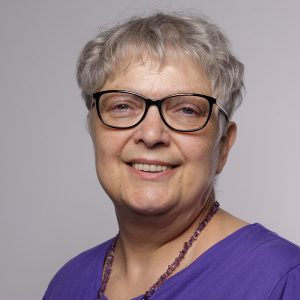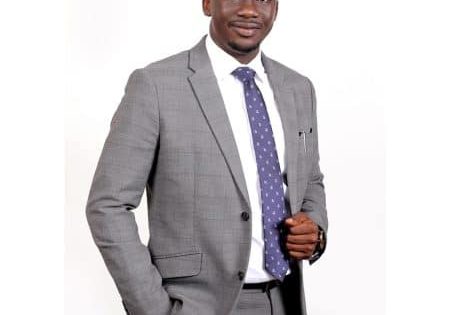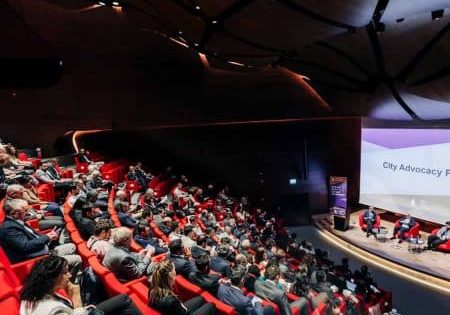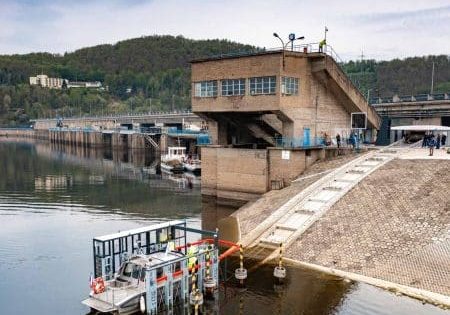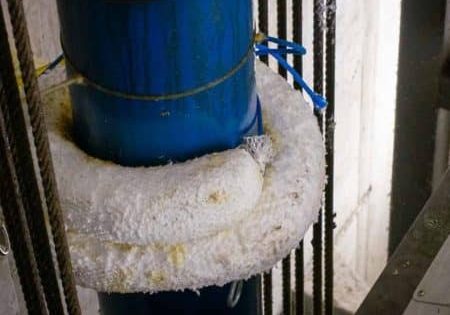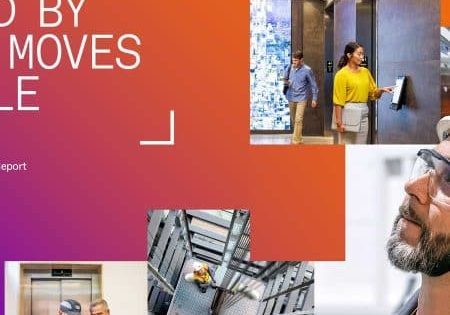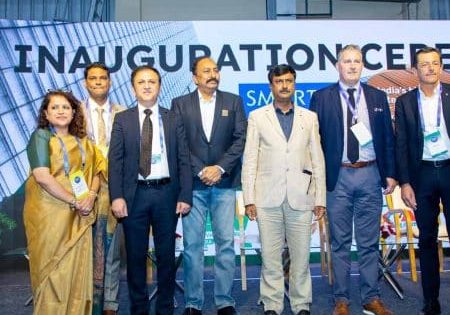“Comprehension Has Priority to Consensus!”
Jun 1, 2024

An interview with the new DAfA chairperson
Your author, Undine Stricker-Berghoff (USB), in March 2024, spoke with Dr. Peter Hug (PH), managing director Lifts and Escalators, German Mechanical Engineering Industry Association (Verband Deutscher Maschinen- und Anlagenbau VDMA), Frankfurt/Main, Germany, who was elected the new chairperson of Deutscher Ausschuss für Aufzüge (DAfA German Committee for Elevators). DAfA serves the general exchange of experience and information on elevators for all interested parties but does not have a regulatory role.
USB: To get us in the mood, Dr. Hug, would you please describe one of your typical working days.
PH: There are no two days the same; mails or phone calls often come in in the morning, and priorities have to be reassessed. My business area includes elevators and escalators, as well as two other industrial sectors. I spend 50% of my time on the road, mostly in Europe but also worldwide, to attend meetings, trade fairs or training facilities. This means that I don’t sleep in my own bed for 120 to 150 nights a year. I particularly enjoy being often in India, for example, where I have set up schools for the facility management industry. China is also high on my agenda — and it often helps that my wife is Chinese. I also spend a lot of time in Brussels, Belgium, and Strasbourg, France, where there are places of establishment of the European Parliament. I meet my team once a week online and once a month, on a Monday, face to face.
USB: You are the new chairperson of the DAfA. Is there a deputy?
PH: The situation arose the year before last when I took over as deputy chairman on an acting basis. The longstanding chairperson was Thomas Pfaff, formerly of TÜV Rheinland, and I was his deputy for the last two years of his service. So, it was only natural that I should follow in the footsteps of my predecessor. Last year, I successfully ran for office. We make an effort to ensure that the deputy chairperson does not come from the same “bench” respectively stakeholder group. Therefore, this April, we elected Jürgen Stillger from the “bench” of elevator operators as deputy.
USB: What motivated you to accept this position?
PH: There was and still is an urgent need in the industry for an exchange of information with all interested parties regarding elevators. Maintaining such an exchange is also important to me personally, but it is not always easy. However, with more than 30 years of experience in an association, I have a proven track record of moderating different interests in working groups and panels.
The secretariat of the DAfA was hosted by VDMA already for some time because my predecessor in office, Peter Günther, was also chairperson and revitalized DAfA. My colleague, Can Demircan, runs the DAfA secretariate, simplifying internal coordination.
USB: Who else is on the committee?
PH: In DAfA, there are currently five “benches”: The operators are responsible for safety at the end of the chain. The associations, where I also represent VDMA as managing director; the “Big 4” and also small and medium-sized enterprises (SMEs) are on the manufacturers’ bench. We include component manufacturers, as well as planners and consultants. On the associations’ bench, we find also the Verein Deutscher Ingenieure (VDI Association of German Engineers), VFA-Interlift, Vereinigung mittelständischer Aufzugsunternehmen (VmA Association of Medium-sized Lift Companies), Verband der Technischen Überwachungsvereine (TÜV-Verband Association of Technical Inspection Agencies) and Berufsgenossenschaft (BG Social Accident Insurance Institution). We are currently looking for representatives from public contractors.
USB: What are the objectives of DAfA?
PH: DAfA serves the general exchange of experience and information on elevators. The benches exchange their knowledge, their experiences, their opinions and also their wants on current topics.
There is a charter, but it deals more with policies and procedures in the sense of bylaws. DAfA does not have its own budget, which is why the website is also attached to the VDMA. The meetings take place online, in Frankfurt or, on invitation by members, in turn. The last DAfA Topics Committee meeting was held at BASF in Ludwigshafen, and the last DAfA meeting at VDMA in Frankfurt Main, both in Germany.
USB: What topics are covered in DAfA?
PH: Generally speaking, you might say configuration, operation, occupational health and safety, as well as coordination. However, topics are not defined in the charter. Ideas come up on call, but especially in the Topics Committee. The newly established Topics Committee is also responsible for preparing the meetings.
USB: To whom are the results of DAfA’s work directed?
PH: The exchange of information creates comprehension for the positions of the benches. In particular, the results of the discussions help operators, for whom elevators are generally not the main area of activity, but one topic among many.
USB: To what extent are DAfA’s statements and papers legally binding?
PH: DAfA was founded respectively revived when there were still gaps in the regulations, which nowadays are closed. Meanwhile, European legislation and the regulatory frenzy are making life difficult for the industry and other stakeholders. We recently dealt intensively with the Supply Chain Duty of Care Act, the Cyber Resilience Act and their effects. Also, the purported conversion of the EU Lifts Directive into an EU Lifts Ordinance will be a topic in DAfA, as was the process of converting the EU Machinery Directive into the EU Machinery Ordinance.
DAfA itself does not conduct any additional regulation but does interpret technical Rules and Acts. The website contains a reference to the DAfA hotline and information on how to submit a request for interpretation to obtain a quick, comprehensive and correct response. In turn, the arguments of DAfA are now also often topics in regulatory panels.
USB: How often does the committee meet? How do the meetings generally work?
PH: DAfA meets twice a year. The next meeting will take place online on October 29. In between, the new Topics Committee meets; individuals and institutions that have taken on topics also work on them. In addition, expert groups are set up by the Topics Committee if required. A major topic now, for example, is the status of and approach to ISO 8100-1/-2, which has been broken down into smaller individual packages.
USB: When was the last meeting, and what were the items on the agenda?
PH: The meeting took place at the VDMA in Frankfurt in April. Before that, a meeting was also held at Frankfurt Airport last October. The agenda included topics such as internal organization and the charter. The composition of the benches and their reports on their topics were also dealt with. Then, there was the Topics Committee and the appointments to this Committee, as well as the expert panels. Also discussed — and then delegated to the Topics Committee — were the resolution of the Experience Exchange Group of Authorized Inspection Bodies (EK ZÜS Erfahrungsaustauschkreis Zugelassene Überwachungsstellen) to change their approach to cybersecurity and the associated application of the Technical Rule for Operational Safety (Technische Regel für Betriebssicherheit TRBS) 1115 Part 1 Cybersecurity for safety-related measuring and control equipment.
USB: Which resolutions were passed?
PH: Freshly established in October 2023 was, amongst other topics, the above-mentioned DAfA Topics Committee, which regularly explores new topics and prepares votes. This allows the discussion in DAfA to go to the necessary depth instead of scratching at the surface. In this way, more and different aspects are brought to the table.
USB: Which other activities with which intended results were planned?
PH: We will be dealing with the potential “end” of the Ordinance on Industrial Safety and Health. How should the new Ordinance on Installations Requiring Inspection and the Ordinance on the Use of Work Equipment be implemented in practice? Here, the benches, including VDMA, have quite different interests. Will there be instructions for installers from the EU Lifts Ordinance?
The first topic of the new Topics Committee has been the Technical Rule for Operational Safety TRBS 1115-1 Cybersecurity, on the application of which different positions are sometimes held in the elevator industry. Based on the preparations in the Committee, this would then lead to a continuation and deepening of the discussion already started at the last DAfA meeting in the coming meetings. For example, will there be additional requirements for systems that require inspection, such as pressure systems and explosion protection systems?
Manufacturers of safety-related measurement and control technology (MSR Mess-, Steuer- und Regelungstechnik), for example, only consider cybersecurity to be relevant for PESSRAL. For others, emergency call systems and frequency converters are included in addition to PESSRAL. Is “being stuck in the elevator for a longish time” a physical injury to users comparable to an accident? So, how wide must MSR systems be interpreted? VDMA and VFA-interlift have so far supported the first position. However, EK ZÜS has decided to include frequency converters and emergency call systems in its inspections from April 1 onward. Therefore, this will have to be discussed further in DAfA.
And then, there is — in addition to a whole tsunami of regulations coming over us from Brussels — the EU Cyber Resilience Act in preparation. Among other things, it requires security-relevant systems to be updatable. These security updates must be free of charge for the operator. However, they may not be able to be carried out remotely. Who pays for this? For example, the software could be available for EUR0, and the rest could be covered by a fee-based service contract. But of course, there are also other ideas.
USB: Could you please tell us something about the history of DAfA up to the present day?
PH: DAfA was first mentioned more than 100 years ago. We found a historical document in VDMA, a kind of founding protocol from 2004/2005, in which, among other things, the benches are introduced. DAfA was re-established at that time, just like the Olympic Games of Modern Times.
USB: What significance does DAfA have in Germany, in Europe, and even worldwide?
PH: The need for such a discussion format, where all benches sit around a table, continues to grow, may be even beyond the borders of Germany, if the EU Lift Ordinance applies in identical wording in all European countries. The European Lift Association (ELA) could analogously — like VDMA in Germany — be complemented by the various interest natures.
USB: How will DAfA develop under your leadership?
PH: My focus is on organization and professionalization. Setting and achieving clear goals; for this, we cannot afford unprepared and, thus fruitless, discussions. Some benches were dissatisfied; some did not contribute actively enough, questioned DAfA. However, the associations and manufacturers continue to see the need and the benefits. If the Topics Committee and expert panels create a good basis, DAfA will be strengthened, both internally and externally. Comprehension has priority to consensus! Talking to each other can be the start of a good relationship.
USB: How are the results of the work communicated?
PH: In any case, we can and must communicate these even better and more broadly in the future according to my plan as chairperson. We have agreed that if the benches have different interests, they will represent the results themselves to the outside world. The aim is to get everyone on board. But — between a single elevator over three floors in an apartment building with a property manager, a hotel in a high-rise and, for example, BASF as an industrial company with many elevators and its own professional on-site service, measures have to be put into perspective depending on the installation. So, if the case arises: “We agree that we disagree,” the benches publish separately, otherwise together.
USB: Where can I find the results?
PH: You can access the website at www.vdma.org/dafa (in German language only).
Inquiries and responses to interpretations of technical rules and acts are via the DAfA hotline received, collected and published in summarized form. The latest version can be downloaded from the website. Unfortunately, this method is used far too seldom, which is why I would like to take this opportunity to promote it.
The website also contains four position papers on elevators without car doors, the properties of elevators for the use of fire fighters, modifications to elevator systems and elevators for handicapped persons.
In the near future, we will consider relaunching the website. The organization, the players and the technical contents must be presented in a more comprehensive, yet easily accessible, way.
USB: How can I get in touch with DAfA if required?
PH: You may get in touch with DAfA anytime by email at [email protected].
USB: Finally, perhaps a few words outside of DAfA on the economic situation of the elevator industry in Germany, Dr. Hug?
PH: The construction industry is determining the situation; the elevator industry is following suit. Housing construction in Germany has collapsed; the elevator market has followed. To release this brake, the government would have to tackle the real estate transfer tax. For example, it could suspend it for two years, as we in VDMA have demanded repeatedly. This could at least partially offset the rise in interest rates for construction financing from 2% to around 4.5% still today, which would stimulate the market again.
As an aside: Germany has the lowest home ownership rate compared to other EU countries. Promoting social housing construction would be rather counterproductive here, as it favors renting over buying property. In addition, there is not enough construction ground available, which is also not wanted by at least one political party in the “traffic light” coalition due to climate protection and soil sealing, for example. Non-residential construction is also suffering.
VDMA Association Lifts and Escalators
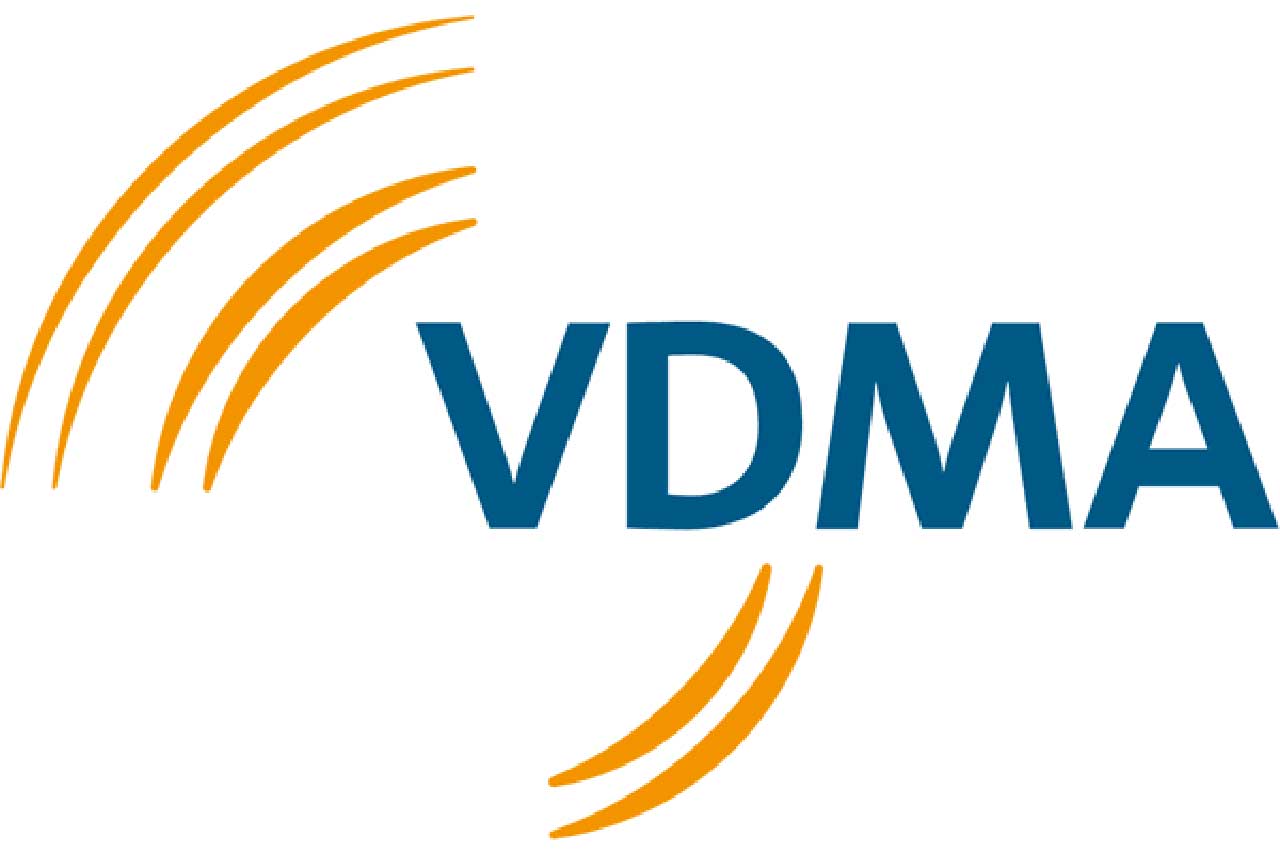
The VDMA Association Lifts and Escalators represents 90% of the German market. There are currently around 830,000 installed elevator systems in Germany, of which 725,000 are for passenger transportation and approximately 40,000 are escalators. Every year, an average of 20,000 new elevator systems are added or existing systems are replaced throughout the country. The industry turnover is more than EUR3 billion and the sector employs approximately 17,000 people.
DAfA Secretary Can Demircan
Get more of Elevator World. Sign up for our free e-newsletter.
